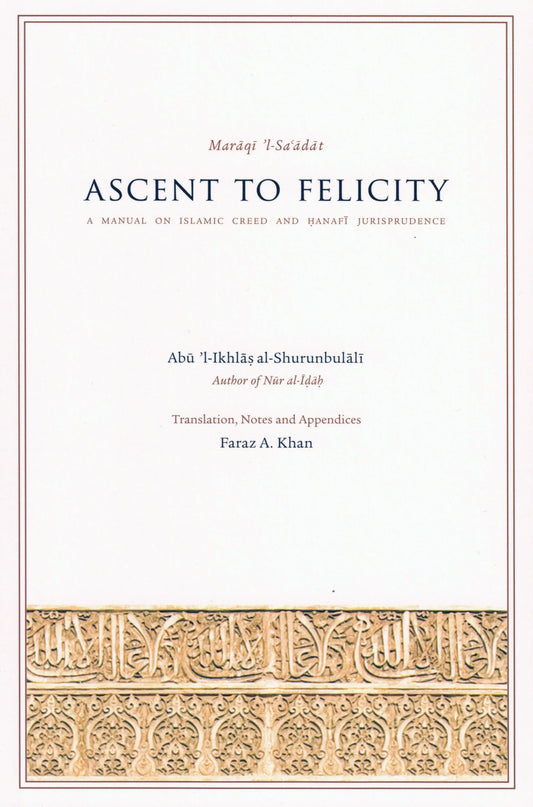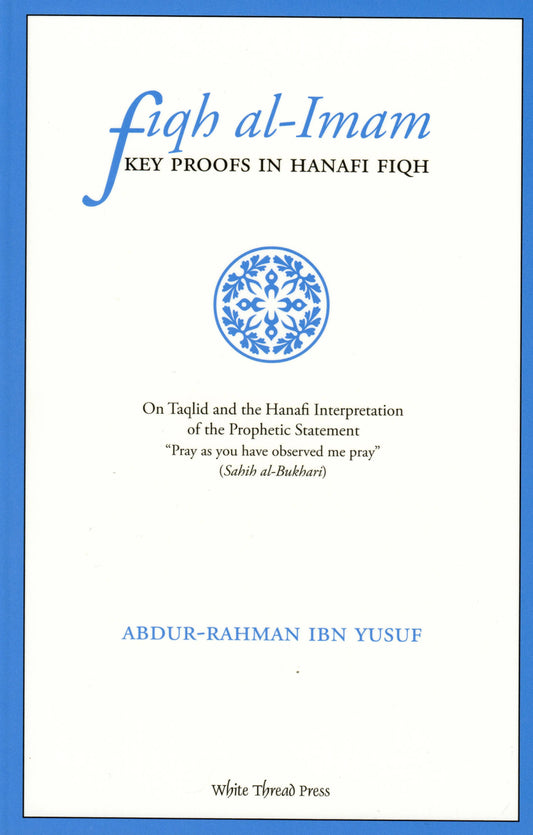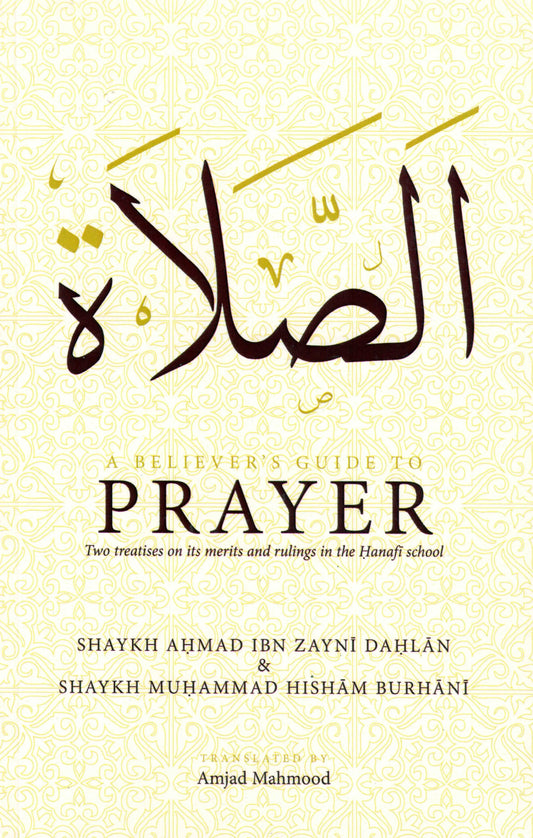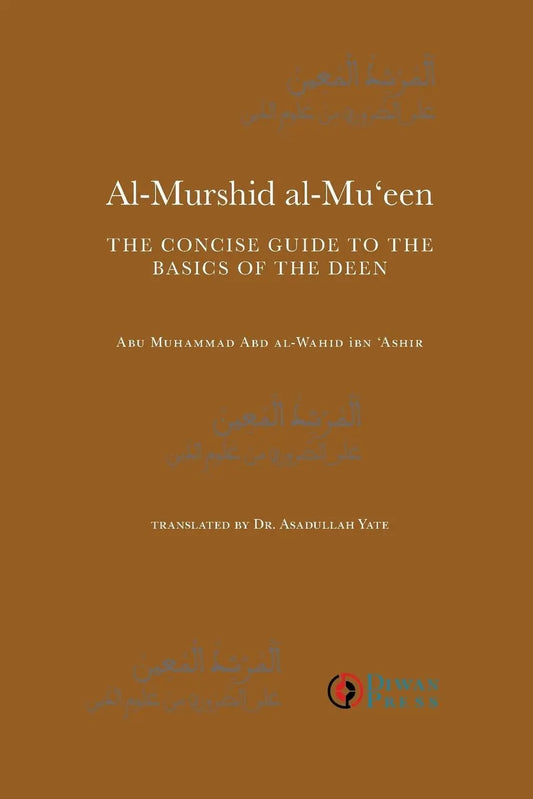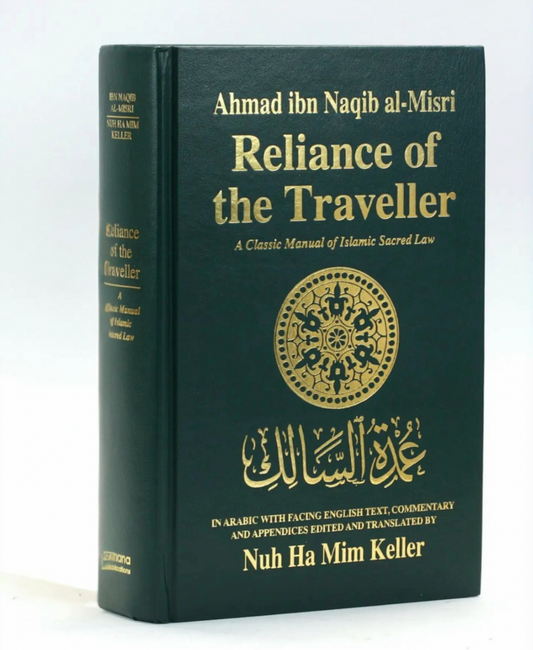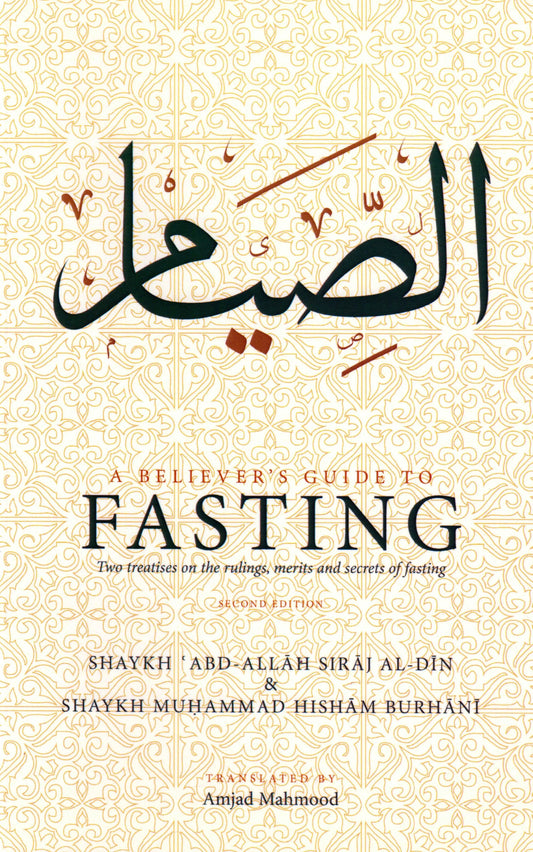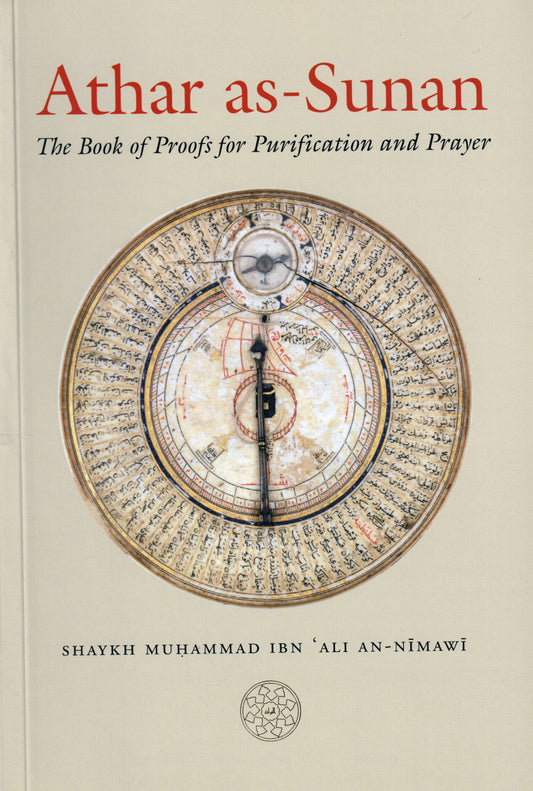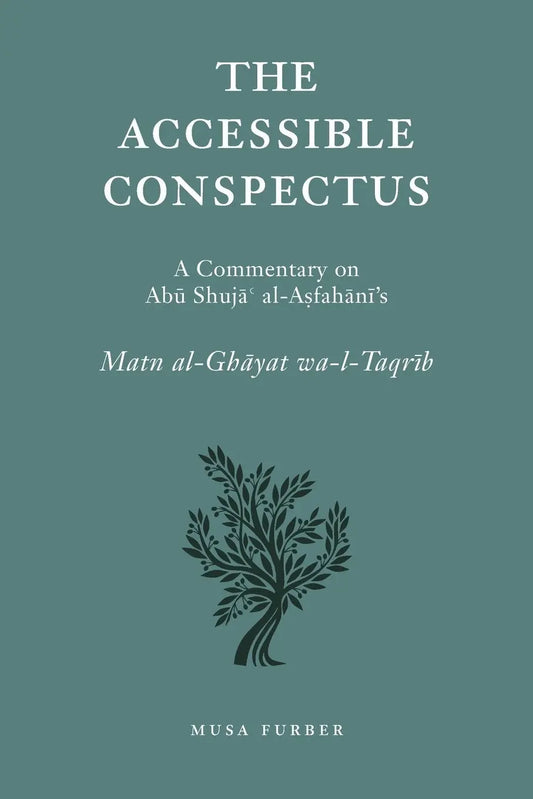Collection: Fiqh (Jurisprudence)
-
Ascent to Felicity (Maraqi 'lSa'adat)
Al-Shurunbulali
Regular price $13.95 USDRegular priceUnit price / per$16.95 USDSale price $13.95 USD5.0 / 5.0
(37) 37 total reviews
Sale -
The Absolute Essentials of Islam: Faith, Prayers & The Path of Salvation According To The Hanafi School
Faraz Rabbani
Regular price $7.95 USDRegular priceUnit price / per$10.00 USDSale price $7.95 USD5.0 / 5.0
(16) 16 total reviews
Sale -
Imam Abu Hanifa's Al-Fiqh al-Akbar Explained
Abul-Muntaha al-Maghnisawi
Regular price $30.00 USDRegular priceUnit price / per4.9 / 5.0
(20) 20 total reviews
Sold out -
Fiqh Al-Imam: Key Proofs in Hanafi Fiqh
Abdur Rahman ibn Yusuf Mangera
Regular price $9.95 USDRegular priceUnit price / per$13.00 USDSale price $9.95 USD5.0 / 5.0
(6) 6 total reviews
Sale -
Humorous Anecdotes: From The Lighter Side of Islamic History (Volume 1)
Moulana Afzal Ismail
Regular price $5.95 USDRegular priceUnit price / per$10.00 USDSale price $5.95 USD5.0 / 5.0
(2) 2 total reviews
Sale -
The Shafi’i Manual of Purity, Prayer & Fasting
Tashfeen Ekram
Regular price $7.95 USDRegular priceUnit price / per$10.00 USDSale price $7.95 USDSale -
Usul Ash-Shashi Principles Of Islamic Jurisprudence
Nizam Ad-Din Ash-Shashi
Regular price $13.95 USDRegular priceUnit price / per$16.95 USDSale price $13.95 USD5.0 / 5.0
(8) 8 total reviews
Sale -
A Believer's Guide to Prayer
Ahmad Zayni Dahlan, Muhammad Hisham Burhani
Regular price $18.95 USDRegular priceUnit price / per5.0 / 5.0
(2) 2 total reviews
-
Birth Control & Abortion in Islam
Muhammad Ibn Adam Al-Kawthari
Regular price $7.95 USDRegular priceUnit price / per$10.00 USDSale price $7.95 USD5.0 / 5.0
(2) 2 total reviews
Sale -
Al-Murshid al-Mu‘een: The Concise guide to the Basics of the Deen
Ibn Ashir
Regular price $12.00 USDRegular priceUnit price / per -
Sold out
A Believer's Guide to Zakat
Muhammad Hisham Burhani
Regular price $12.00 USDRegular priceUnit price / per -
The Wealth of Women: Understanding Islamic Financial Laws
Rabab Razik
Regular price $17.95 USDRegular priceUnit price / per$22.95 USDSale price $17.95 USD5.0 / 5.0
(2) 2 total reviews
Sale -
Reliance of the Traveler : A Classic Manual of Islamic Sacred Law
Ahmad ibn Naqib Al-Misri
Regular price $59.95 USDRegular priceUnit price / per -
Al-Maqasid: Imam Nawawi's Manual of Islam - Revised and Expanded Edition
Al-Nawawi
Regular price $16.95 USDRegular priceUnit price / per -
The Sacred Islamic Law (Qanun-i-Shariat): Essentials of Islamic Creed and Hanafi Fiqh
Shams al-Din Ahmad al-Hanafi
Regular price $17.99 USDRegular priceUnit price / per -
Contemporary Fatawa 3 Vol set - (Hanafi Fatwa Collection)
Ebrahim Desai
Regular price $34.95 USDRegular priceUnit price / per$49.95 USDSale price $34.95 USDSale -
Evolution Theory & Islam: Letter to Suleman Ali
Nuh Ha Mim Keller
Regular price $5.00 USDRegular priceUnit price / per5.0 / 5.0
(2) 2 total reviews
Sold out -
A Believer's Guide to Fasting
Abdallah Sirajuddin & Muhammad Hisham Burhani
Regular price $15.00 USDRegular priceUnit price / per5.0 / 5.0
(2) 2 total reviews
-
Birgivi's Manual Interpreted: Complete Fiqh of Menstruation & Related Issues
Muhammad al-Birgivi
Regular price $14.95 USDRegular priceUnit price / per5.0 / 5.0
(1) 1 total reviews
Sold out -
Athar as-Sunan: Traditions of the Sunnah
Muhammad ibn Ali an-Nimawi
Regular price $23.95 USDRegular priceUnit price / per$29.95 USDSale price $23.95 USD5.0 / 5.0
(4) 4 total reviews
Sale -
The Mukhtasar Al-Quduri
Abul Husayn Ahmad al Baghdadi
Regular price $79.99 USDRegular priceUnit price / per5.0 / 5.0
(2) 2 total reviews
-
The Ultimate Conspectus: Matn al-Ghayat wa al-Taqrib
Abu Shuja al-Asfahani, Mufti Musa Furber
Regular price $12.95 USDRegular priceUnit price / per5.0 / 5.0
(2) 2 total reviews
Sold out -
Sold out
The Accessible Conspectus
Abu Shuja al-Asfahani
Regular price $19.95 USDRegular priceUnit price / per5.0 / 5.0
(2) 2 total reviews
Sold out -
The Value of Time
Abd al-Fattah Abu Ghuddah
Regular price $8.95 USDRegular priceUnit price / per

